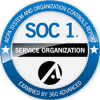According to the Center for Disease Control (CDC), complex health problems—which can be prevalent in Medicaid, Medicare Advantage, and dual-eligible populations—account for approximately 90% of the USA’s healthcare expenditure. Complex care management programs can help plans and providers manage complex and overlapping medical conditions more effectively to achieve better health and cost outcomes and improve the well-being of the people they serve.
This comprehensive and patient-centered approach delivers comprehensive, coordinated, and highly personalized support for the unique and diverse needs of each individual to enhance the quality of care, improve efficiency, and reduce unnecessary costs.
Page Content
How Patients Are Identified for Care Management
Patients can be identified for complex care management through a comprehensive process that includes assessing their medical history and healthcare needs, identifying risk factors, and categorizing individuals into different risk groups based on their likelihood of experiencing certain health events or outcomes. By identifying individuals who are at a higher risk of poor outcomes, you can intervene early and enroll them in programs that ensure that they receive the support they need before a problem becomes acute.
This approach helps organizations allocate resources where they are most needed, ensuring that high-risk patients receive the attention and support required for optimal care. Targeting resources for preventative care and proactive management of chronic conditions can significantly lower costs by reducing hospital admissions and readmissions of high-risk populations.
Benefits of Managing Patients with Care Management Software
Care management software plays a crucial role to optimizing care for patients with complex medical conditions by enabling an interdisciplinary team to collaborate in delivering coordinated, personalized, and effective care. To be successful, the care management software you choose should have the following capabilities:
Comprehensive patient profile providing a 360° view of individual health issues, medications, etc. with transparency across medical, behavioral, and social determinants that can impact health.
Coordinated care plans that address all aspects of an individual’s complex health needs to ensure that all providers stay informed and can work together in a harmonized way without conflicting or redundant treatment.
Alerts and reminders for important clinical tasks to ensure each individual receives appropriate and timely care.
Health data integration and interoperability with various sources to provide a holistic view of the patient’s health and enable more informed decisions.
Patient engagement to create stronger partnership and share educational resources and support materials that can help them manage their own health.
Outcome tracking and reporting to evaluate the effectiveness of interventions, improve treatment plans, and meet performance requirements to ensure compliance.
For more information, check out 13 Things You Need to Know to Choose the Best Care Management Software
Care Management Improves Quality and Reduces Costs
Complex care management can make a big impact on improving quality outcomes and reducing the cost of delivering healthcare through:
- Preventative care and early intervention—Early identification of conditions and early interventions can help reduce the progression of disease.
- Reduced hospitalizations and readmissions—Regular monitoring of care and medications supports timely interventions, enabling more appropriate care vs. costly emergency care.
- Coordinated and streamlined care—Coordination across providers ensures the entire care team is aligned, reducing redundant care and allocating resources more efficiently.
- Integration of social determinants of health—Complex care management that integrates with community resources to address social determinants of health (such as access to housing, transportation, and healthy food) can help eliminate the barriers that prevent good outcomes.
Keys to Successful Care Management
Complex care management requires quality, coordinated care. Once populations are stratified to identify individuals who can benefit from complex care management, they can be enrolled in appropriate care coordination programs that enable providers and community resources to collaborate on care.
To be effective, these programs should address all determinants of health—including the behavioral and social issues that get in the way of care—to improve outcomes and health equity.
Incedo Supports Complex Care Management
With over 25 years integrating behavioral and social determinants with medical management, InfoMC is an ideal partner to help organizations deliver comprehensive, whole-person care.
InfoMC’s Incedo™ enterprise care management solution offers a versatile, rules-driven care platform that can help you bring together the providers and community resources necessary to effectively manage care for patients who have complex medical conditions. Preconfigured for the Special Needs Plan (SNP) model of care and configurable to support industry and organizational best practices, Incedo helps you make care management more efficient while ensuring compliance with CMS, NCQA, URAC, federal, state and local requirements.








